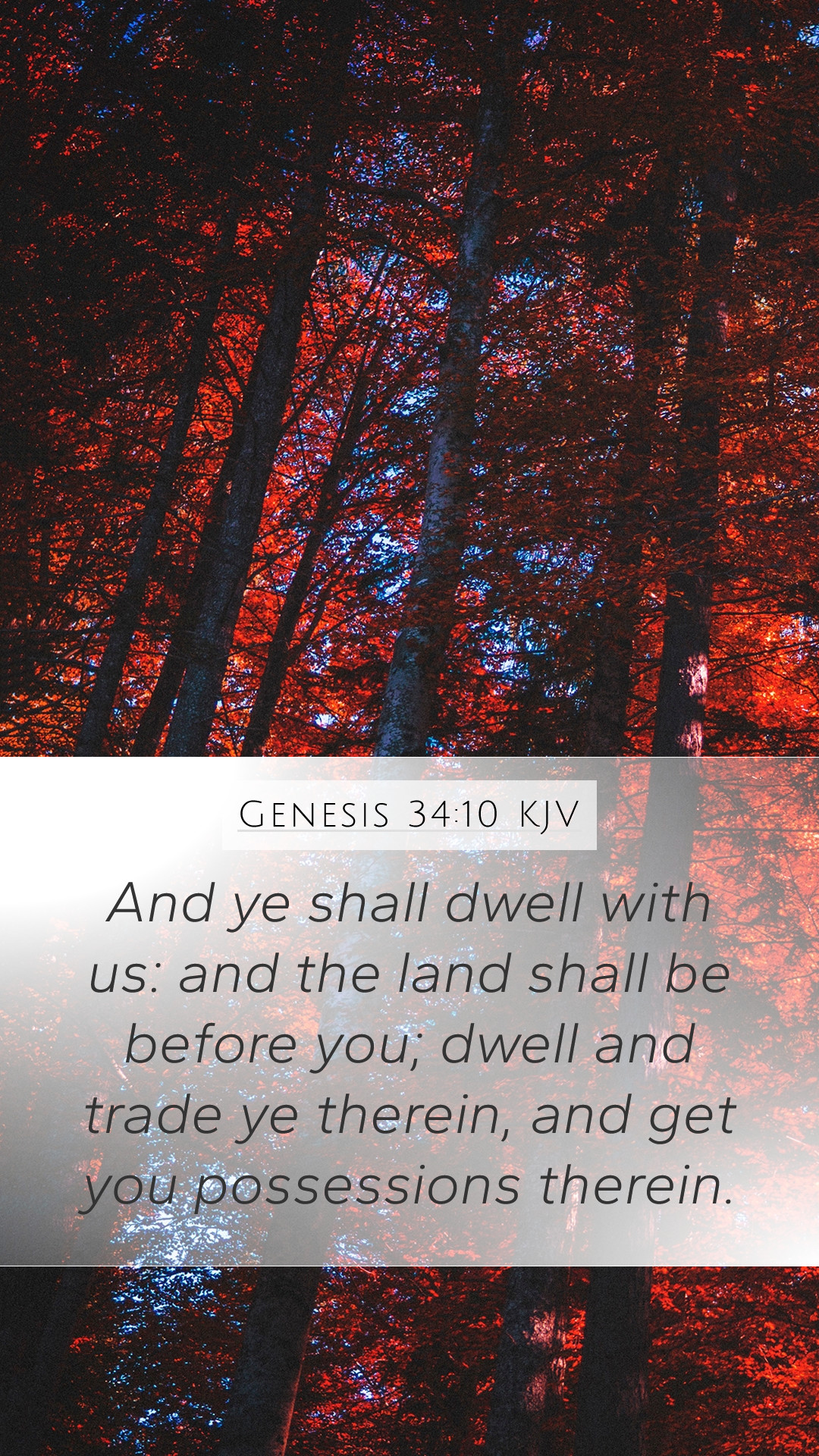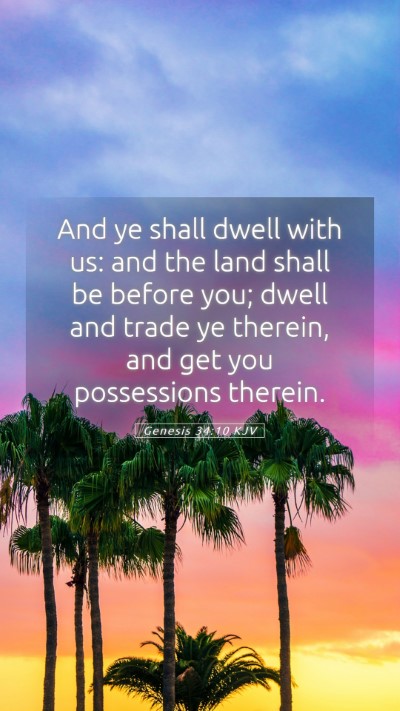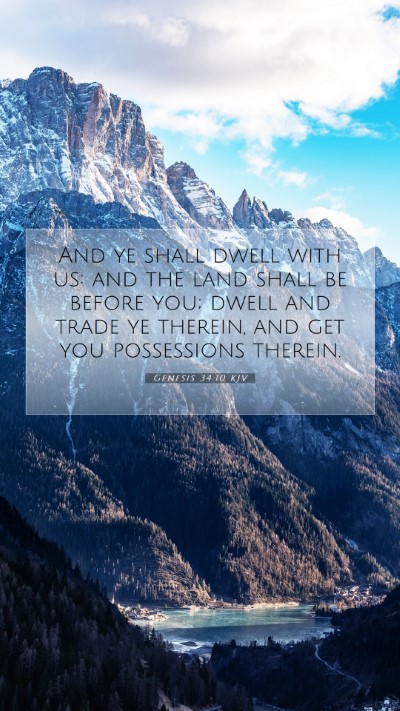Bible Verse Meaning: Genesis 34:10
Verse Context: Genesis 34:10 states, "And you shall dwell with us, and the land shall be open to you; dwell and trade in it, and acquire property in it." This verse occurs during the narrative of Shechem's defilement of Dinah, after which he seeks to marry her and proposes that Jacob and his family settle among them.
Summary of Insights
This verse highlights the complexities of relational dynamics within the biblical narrative, particularly in the context of inter-ethnic relationships and the consequences of actions taken in passion versus duty. The proposals made by Shechem can be viewed as a sincere attempt to rectify his wrongdoing, yet they also reflect the socio-political nuances of the time.
Commentary Insights
- Matthew Henry: Henry emphasizes the moral failure present in Shechem’s approach, highlighting the need for genuine repentance over mere political expediency. He suggests that the offer to dwell and trade was self-serving rather than a true reconciliation effort.
- Albert Barnes: Barnes draws attention to the implications of settling among the Hivites, suggesting that it reflects Jacob’s potential neglect of his responsibility to keep his family distinct and holy before God. He stresses the need for discernment in how relationships can impact faith and culture.
- Adam Clarke: Clarke notes the significance of land and property in this passage, contextualizing Shechem's offer as not just a romantic gesture but also a strategic move. He points out how this can illustrate human attempts to bargain for peace without true ownership of consequences.
Interpretative Analysis
The phrase “you shall dwell with us” indicates a desire for integration, which may appear appealing but carries deeper implications of potential compromise on the part of Jacob's family regarding their covenant identity. This passage serves as an example of how personal transgressions can lead to broader communal conflicts.
Cross References
- Genesis 34:2 - The initial act of Shechem regarding Dinah.
- Genesis 28:15 - God's covenantal promise to Jacob which underscores the importance of maintaining a distinct identity.
- Exodus 34:12-16 - Warning against intermarrying with other nations which reflects on the historical consequences faced later in Israel's history.
Application and Reflection
This verse invites readers to consider the complexities of their own relationships, especially in inter-cultural contexts. Questions to ponder include:
- What does genuine reconciliation look like in our communities?
- How can we balance cultural integration while maintaining our core values and beliefs?
- What steps can we take to ensure that our actions do not lead to further conflict?
Conclusion
Understanding the nuances of Genesis 34:10 not only enriches our biblical knowledge but also offers significant insights into the complexities of human relationships, accountability, and the importance of maintaining a distinct identity in a pluralistic world. This verse is a reminder that how we respond to wrongdoing informs our character and impacts our community.


